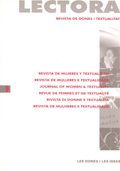"Enduring Freedom". La transformación de la masculinidad liberal en el discurso sobre el terrorismo
Abstract
Following the terrorist attacks of September 11, cultural supplements of the most read newspapers in Germany, as well as new publications on that subject, quoted the geopolitical concepts and points of view gathered in the works of the Nazi jurist Carl Schmitt (1888-1985). The author of this article shows how this discourse –which points out to the emergence of new transgressive political agents- articulates, certainly in a non explicit way, the preoccupation with Western constructed masculinities, which were considered as endangered. In these responses the idea of a masculinity capable of defending a new world order is rehabilitated in the name of “liberty” of “the Western world” and of “mankind”. This idea of masculinity conveys not only a fascist past, but also a fascination with submission and the use of violence against the civil standards of the rule of law. Finally, this analysis shows how, in the present construction of a new world order, what is at stake is the struggle for a new hegemonic masculinity, pointing out as well the high price of the exclusions that it exercises.Downloads
Published
How to Cite
Issue
Section
License
The Author retains ownership of the copyright in this article and grants Lectora: revista de dones i textualitat the rights to print publication of the Article. The work will be available under a Creative Commons Attribution-Noncommercial-No Derivative Works license, by which the article must be credited to the Author and the Journal be credited as first place of publication.
The Author is free to enter in seperate, additional contractual agreements for the non-exclusive distribution of the work as published in this journal (such as institutional repositories or a book), as long as the original publication in Lectora is credited.
The Author is encouraged to post the work online (eg in institutional or thematic repositories, or in their website), as it can lead to productive exchanges as well as to a greater citation of the published work (see The Effect of Open Access).





